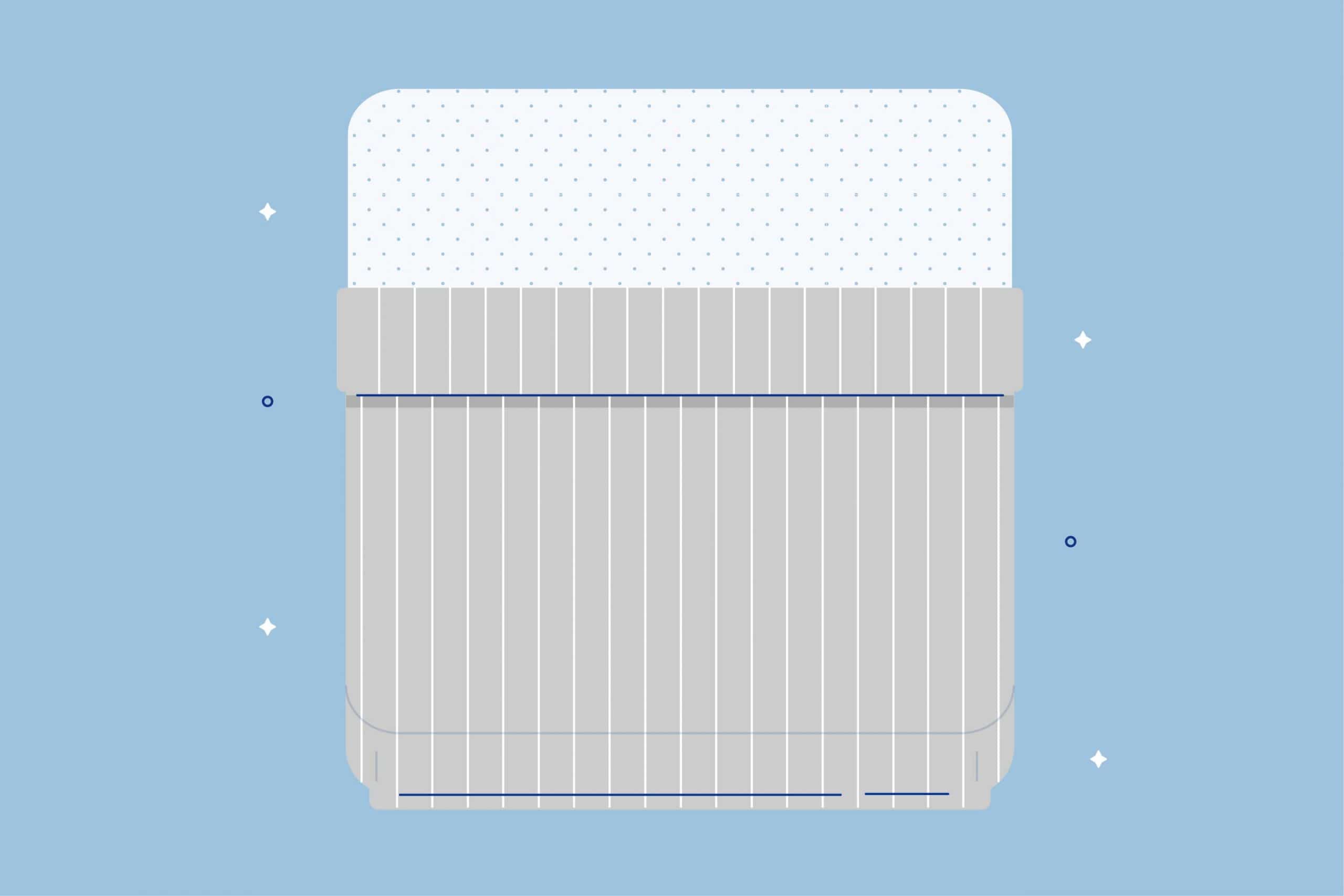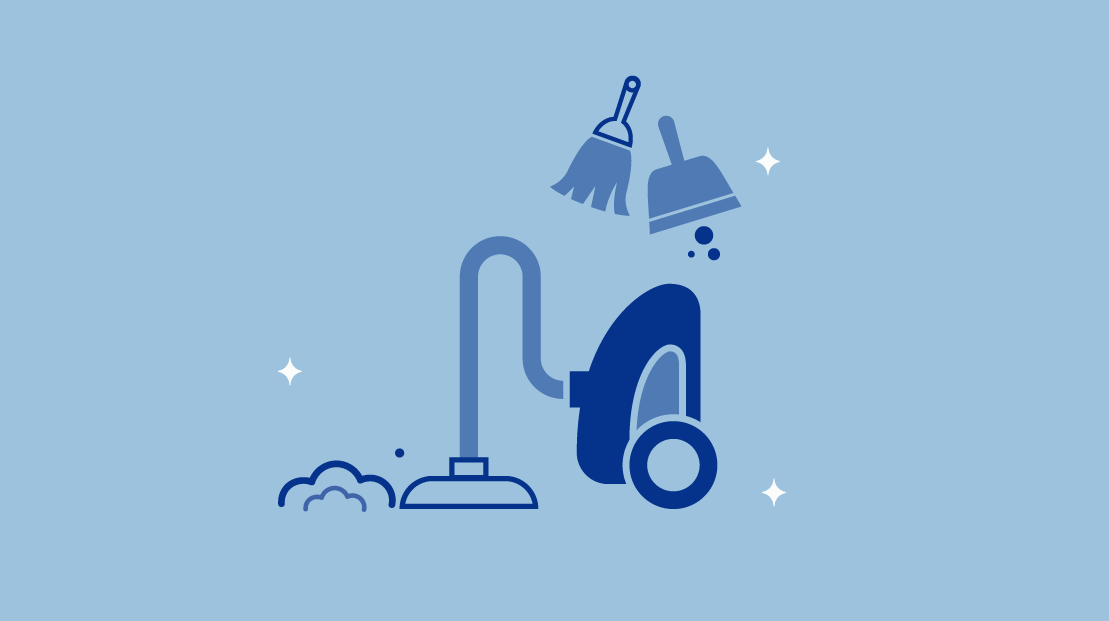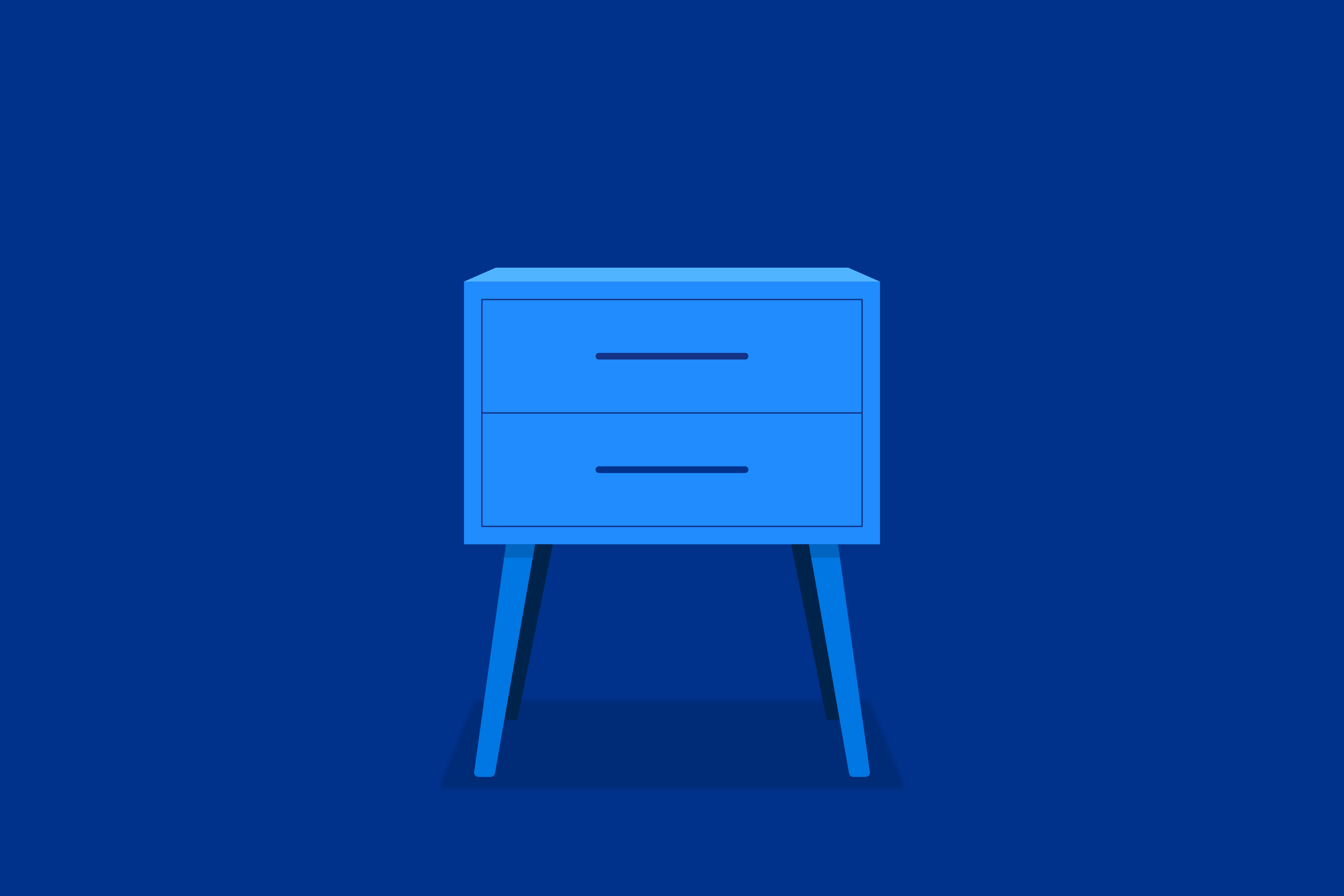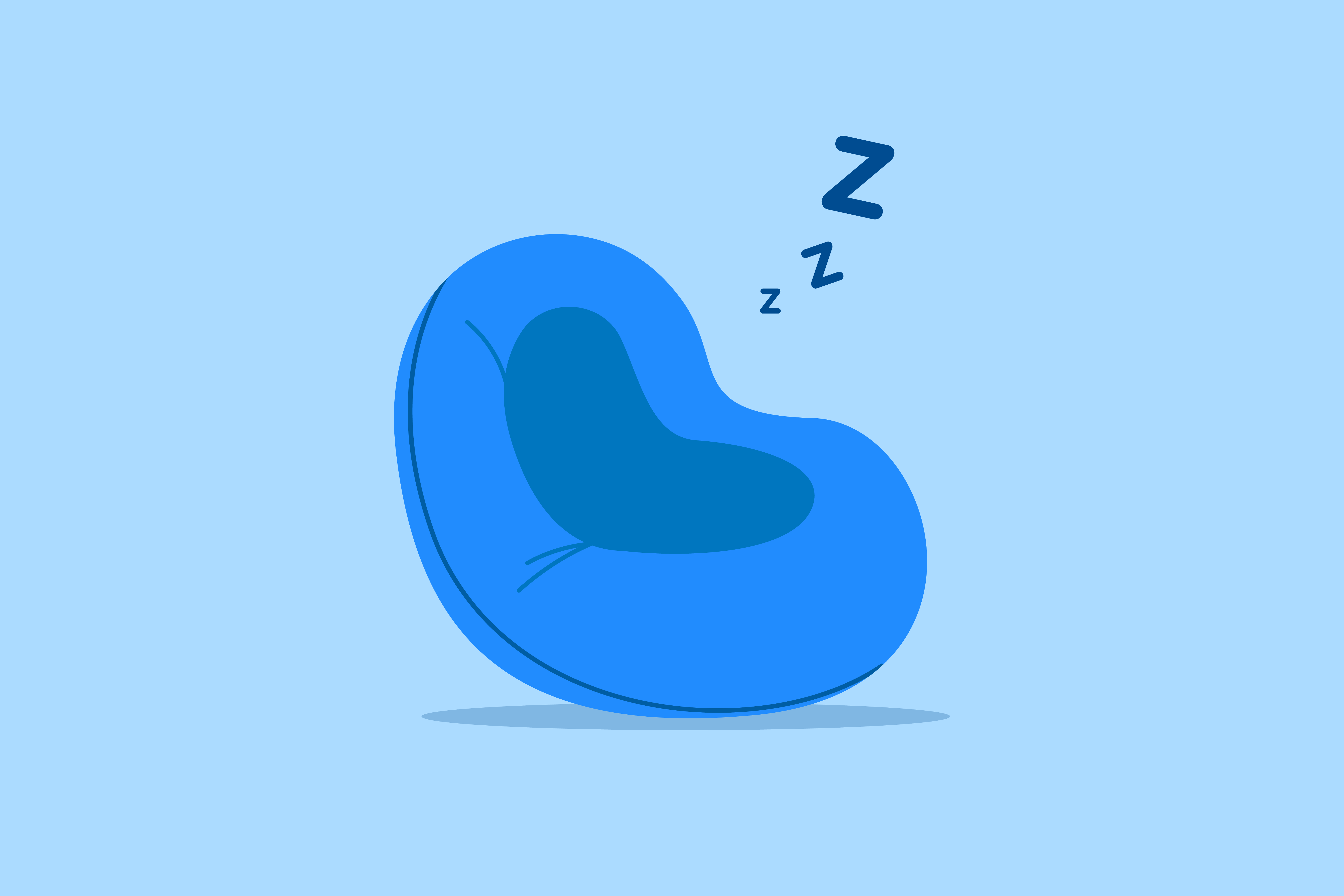Key Takeaways
- Sheets as Protective Layers: Bed sheets go beyond aesthetics, acting as a crucial protective layer for your mattress. They contribute to the longevity of your mattress by preventing direct contact with sweat, dead skin, and bodily fluids, avoiding difficult-to-remove stains and unpleasant odors.
- Hygiene and Allergen Control: Sleeping without sheets exposes your mattress to the accumulation of dead skin cells, body oils, and potential dust mites. Sheets act as a barrier, maintaining a clean and hygienic sleeping environment. Proper bedding choices, including regular washing of sheets, minimize the risk of allergens and contaminants, promoting a healthier sleep space.
- Bacteria Growth Prevention: Bare mattresses can promote microbial bacteria growth, impacting hygiene. Sheets serve as a barrier against bacteria, and regular washing is crucial for preventing bacterial accumulation. Investing in quality mattress protectors further enhances hygiene, ensuring a more comfortable and undisturbed sleep.
Do you sometimes skip using sheets on your mattress and opt to sleep on a bare mattress instead? You might want to reconsider that choice. While you may love the feel of a soft and comfortable mattress against your skin, sleeping without sheets could lead to several undesirable consequences.
Having a bare mattress may sound like a convenient option for modern life rhythms, but it can turn your bed into a breeding ground for bacterial and fungal growth.
In the following sections, we’ll delve into the specific ways that sheets protect you from various allergens, dead skin cells, and sweat. We’ll also touch upon how your bedding choices impact your mattress’s lifespan, your comfort levels, and ultimately, your sleep quality.
So, if you think that sleeping without sheets is not a big deal, keep reading to learn more about why it’s important to make the switch and use sheets for a good night’s sleep. Just how bad to sleep on a mattress without sheets? Let’s dive in and find out.
Quick Guide: A 30-Second Summary
| Best Sheets | Amerisleep Bamboo Sheets |
Importance of Bed Sheets
Have you ever thought about the significance of bed sheets beyond their aesthetic appeal? Bed sheets are more than just a stylish accessory for your bed; they act as a protective layer for your mattress and offer several benefits to your sleeping routine.
One of the main advantages of bed sheets is their ability to help prolong the lifespan of your mattress. When you sleep without sheets, sweat stains, dead skin, and bodily fluids come into direct contact with your mattress, which can lead to difficult-to-remove mattress stains and unpleasant odors.
Bed sheets also play a vital role in maintaining a clean and hygienic sleeping environment. Sweat, dead skin, and bodily fluids can create a breeding ground for bacteria growth, which can cause unpleasant odors and even impact your health. Sheets act as a barrier to prevent these substances from coming into contact with your mattress, ensuring cleanliness and hygienic sleeping conditions.
Overall, bed sheets are an essential part of your bedding choices. Not only do they offer protection and hygiene, but they also contribute to your comfort during sleep. Investing in high-quality bed sheets is a smart decision for your sleep routine and can help ensure a good night’s sleep.
Hygiene Concerns: Dead Skin Cells and Body Oils
Did you know that sleeping without sheets can lead to a buildup of dead skin cells and body oils on your mattress? Over time, this can create an unhygienic sleeping environment and even affect the lifespan of your mattress.
That’s why it’s important to regularly wash your sheets to prevent the accumulation of these substances, along with cleaning and freshening up and deodorizing mattresses. Sheets act as a barrier, preventing dead skin cells and body oils from collecting on your mattress, and maintaining a healthy sleeping environment.
Dust Mites and Allergies
If you suffer from allergies, then you’re probably familiar with the problems caused by dust mites. Verified Source National Library of Medicine (NIH) World’s largest medical library, making biomedical data and information more accessible. View source These tiny creatures thrive in mattresses and bedding, and they’re a common allergen that can cause allergic reactions, skin irritation, and breathing problems. The debate about dust mites has been ongoing for years, with many people questioning whether or not they’re really a problem.
The truth is, dust mites are definitely something to be concerned about. They can spread quickly and cause a range of health issues, particularly for those with asthma or other respiratory conditions. Luckily, having sheets on your bed can help prevent dust mite infestations.
Dust mites spread and can trigger allergic reactions in sleepers. People are not allergic to the mites themselves but to their corpses, secretions, and excrements. The mattress, where they usually sleep, is the most contaminated place for these allergens.
Sheets act as a physical barrier, preventing dust mites from getting onto your skin and causing allergic reactions. By having proper bedding choices, you can minimize the risk of dust mites and other allergens in your sleeping environment.
So, if you’re looking for a way to improve your sleep and protect your health, choosing the right bedding is essential. By keeping your sheets clean and choosing fabrics that don’t attract dust mites, you can create a hygienic and comfortable sleeping environment that promotes good health and well-being.
Mold Spores on Mattress
Sheets act as a protective barrier between your body and the mattress, absorbing sweat and preventing moisture from seeping into the mattress fabric. When you sleep directly on the mattress, without the absorbent shield of sheets, your body’s moisture can penetrate the mattress, creating an environment conducive to the growth of mold and mildew.
Mold thrives in damp and humid conditions, and the natural perspiration that occurs during sleep provides an ideal breeding ground. The fabric of a mattress, if consistently exposed to moisture, can become a haven for mold spores, allowing mattress mold to flourish.
Picture it: your body, a nocturnal moisture factory, releasing its perspiratory symphony onto the mattress. Without the protective embrace of sheets, the mattress absorbs this nocturnal nectar, setting the stage for a potential moldy masquerade. This can manifest as a strange “moving” stain on your mattress and a musty smell, potentially even spreading to further in your bedroom.
To keep your mattress mold-free, embrace the poetic dance of sheets. They waltz between you and the mattress, absorbing the sweat in a graceful pirouette, leaving your bedchamber free from the specter of mold. Consider also a mold-resistant mattress.
Pet Fur and Dust
When you sleep without sheets, your mattress can accumulate pet fur, dust, and other allergens. Verified Source National Library of Medicine (NIH) World’s largest medical library, making biomedical data and information more accessible. View source Not only can this lead to an uncomfortable sleeping experience, but it can also impact the overall cleanliness of your bed.
Having sheets on your bed helps remove dust and other debris, preventing the issue of a dusty mattress to clean up later. Sheets also provide a barrier that helps prevent pet fur and other allergens from penetrating your mattress, helping you maintain a cleaner and healthier sleeping environment.
Proper bedding choices, including regularly washing bed sheets about once a week, are especially important for those with allergies or sensitivities to these types of allergens and contaminants. You may also want to consider the benefits of an air purifier in the bedroom, as it can swallow up allergens in the air before they settle on bed.
Worrying about pets putting liquid, dirt, bacteria, and debris on your mattress is a concern, so it’s important to keep pet hair off your bedding.
Simply using a flat sheet or a fitted sheet won’t suffice. You should opt for a mattress protector to safeguard your mattress.
Incorporating clean sheets into your nightly routine is an easy and effective way to ensure a more comfortable and hygienic sleeping experience.
Sheet Maintenance to Prevent Bacteria Growth
Did you know that sleeping on a bare mattress can promote microbial bacteria growth? Bed sheets act as a barrier to prevent bacteria in the bed from accumulating on your mattress. Regularly washing your sheets is essential to ensure cleanliness and hygienic sleeping conditions.
Here are some tips to help prevent bacteria growth and ensure laundry hygiene: Verified Source National Library of Medicine (NIH) World’s largest medical library, making biomedical data and information more accessible. View source
Wash Sheets Frequently
Wash your sheets at least once a week to remove sweat, dead skin, and other bodily substances that may attract bacteria. Be sure to follow the care instructions on the label to prevent damage to your sheets.
Allow Sheets to Air Out
When you wake up in the morning, allow your sheets to air out for a few hours before making the bed. This will help evaporate any moisture and prevent bacteria growth.
Avoid Trapping Heat
Sheets can trap heat, causing discomfort during sleep. To prevent this, choose breathable, lightweight sheets made from natural fibers like cotton.
By maintaining your sheets, you can prevent bacteria growth and promote a clean and healthy sleeping environment.
Don’t Forget the Mattress Protector
In addition to sheets, investing in a quality mattress protector is a wise choice for several reasons. These protective layers act as a barrier against spills, stains, and allergens, extending the life of your mattress.
Not only do they provide an extra level of hygiene, preventing the accumulation of dust mites and bacteria, but they also contribute to a more comfortable and undisturbed sleep by ensuring your mattress stays in optimal condition. Otherwise, you might find yourself struggling to clean a mattress properly.
If you do need to tackle a stubborn stain, though, we have plenty of guides to help:
- How to Remove Blood Stains on Your Mattress
- How to Remove Urine Stains and Smell From a Mattress
- How to Get Poop Stains out of a Mattress
- How to Remove Makeup Stains from Mattresses
- How to Remove Coffee Stains from Your Mattress
- How to Clean Vomit from a Mattress
- How to Get Sweat Stains Out of a Mattress
- How to Remove Ink Stains from a Mattress
- How to Dry a Wet Mattress After Water Damage
FAQs
Do you really need a top sheet?
Whether or not you need a top sheet depends on personal preference. Some people find top sheets to be an essential component of their bedding, as they add an extra layer of comfort, help regulate body temperature, and provide a barrier between you and your duvet or comforter.
Others may choose to omit the flat sheet for simplicity, finding that a fitted sheet and duvet alone meet their comfort needs.
How often should you wash your sheets?
The frequency of washing your sheets depends on various factors, including personal hygiene, skin conditions, and lifestyle. In general, it’s advisable to wash your sheets every one to two weeks. However, if you sweat excessively at night, have allergies, or are dealing with any skin issues, you might want to wash them more frequently.
Regular washing not only maintains a clean and comfortable sleeping environment, curtailing bacteria in the bed, but also helps extend the lifespan of your sheets.
Is it bad to sleep on an uncovered mattress?
Yes, we cannot recommend you sleep directly on an uncovered mattress for several reasons. Mattresses can accumulate dust, allergens, and stains over time, and using sheets or a protector helps prevent these issues. Additionally, having coverings provides a barrier against potential bedbugs and contributes to maintaining the hygiene and longevity of your mattress.
Can you sleep with just a comforter?
Yes, you can sleep with just a comforter as long as your mattress is covered, especially in colder weather when additional warmth is needed. Comforters are designed to provide insulation and keep you cozy during the night. In warmer seasons, or for those who prefer a lighter covering, sleeping with just a comforter may or may not be suitable.
It’s all about personal comfort and adapting your bedding to the changing temperatures and seasons.
Should you let your sheets breathe?
Yes, allowing your sheets to breathe is beneficial for maintaining their freshness. Giving sheets proper ventilation helps dissipate moisture, preventing mold and mildew growth. It also aids in preserving the fabric quality, ensuring a longer lifespan for your sheets. Consider airing them out regularly to enjoy clean, crisp bedding.
Is it healthier to leave your bed unmade?
Leaving your bed unmade can have potential health benefits. Allowing the sheets to air out can help reduce moisture and discourage the growth of dust mites, which thrive in a warm and damp environment. Additionally, an unmade bed may promote better air circulation, contributing to a fresher and healthier sleeping environment.
Leaving your bed unmade also allows sunlight to reach and penetrate the mattress and bedding, helping to naturally eliminate bacteria and allergens. This exposure to sunlight can contribute to a cleaner and more hygienic sleeping environment. While personal preferences vary, considering the potential health benefits may influence your choice of whether to leave your bed unmade.
Conclusion
In modern life’s fast-paced rhythm, it might be tempting to skip the extra step of putting on sheets before crawling into bed.
However, as we explored, it’s bad to sleep on a mattress without sheets. A bare mattress can be a breeding ground for fungal growth, bacterial growth, and other issues. In addition, your body heat can make the mattress a perfect environment for dust mites to flourish, while your warmth and moisture can even allow mold in the bedroom to flourish.
Having proper bedding choices, including bed sheets, is essential for a good night’s sleep. Sheets protect from sweat stains, dead skin, and bodily fluids. They act as a barrier to prevent the accumulation of dust, pet fur, and other debris on the mattress.
Not only is it hygienic to use sheets, but it also helps keep your environment clean and healthy. By washing sheets regularly, you can prevent bacteria growth and maintain cleanliness.
About the author
April Mayer is a sleep expert and writer with a degree in exercise physiology. She has dedicated her career to exploring the relationship between sleep and productivity. Her insightful articles, such as "The Surprising Way Your Mood Might Be Messing With Your Productivity" and "Wake Up to More Productive Mornings," have been featured in reputable publications like Forbes, Greatist, Real Homes, Thrillist, Tom's Guide, and Eat This, Not That. With a passion for helping others lead more productive lives through restful sleep, April offers valuable expertise on foods and vitamins for better sleep. As a trusted member of the Early Bird team since March 2020, she continues to provide informative and well-researched content.
View all posts





